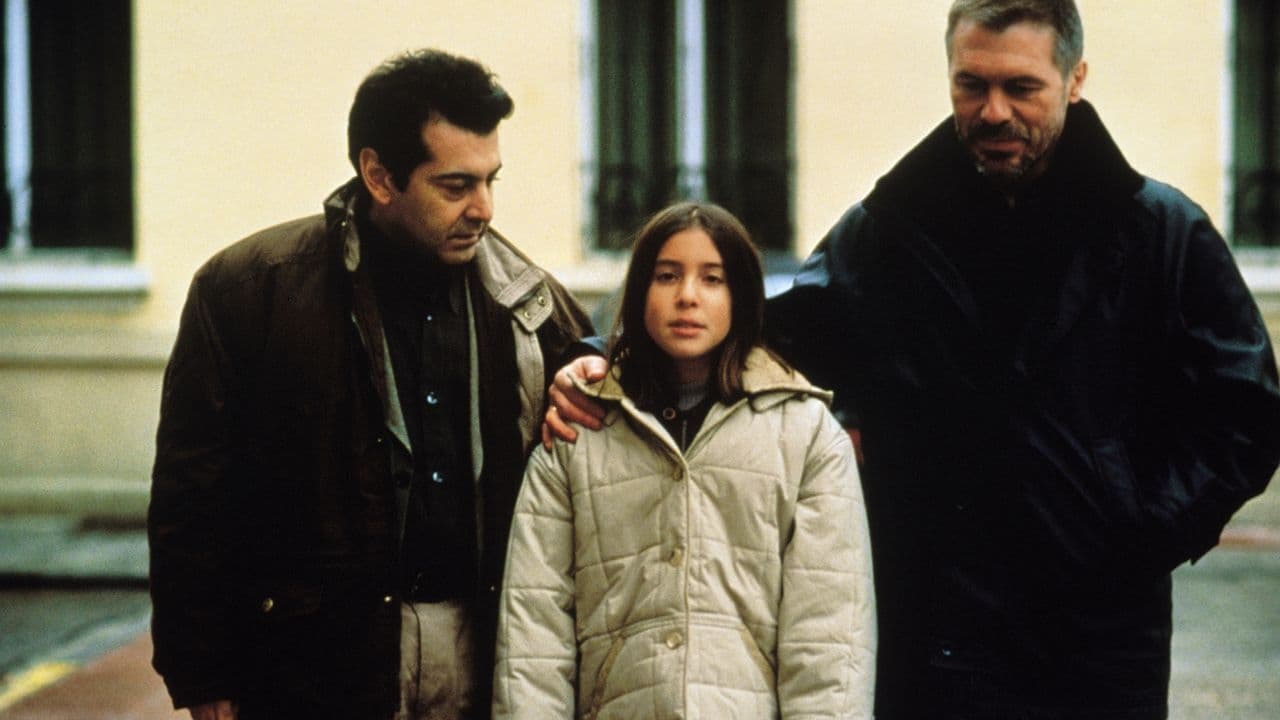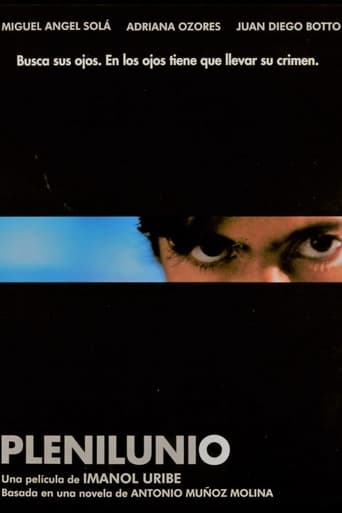

Highly Overrated But Still Good
... View MoreA film with more than the usual spoiler issues. Talking about it in any detail feels akin to handing you a gift-wrapped present and saying, "I hope you like it -- It's a thriller about a diabolical secret experiment."
... View MoreIt's a good bad... and worth a popcorn matinée. While it's easy to lament what could have been...
... View MoreAll of these films share one commonality, that being a kind of emotional center that humanizes a cast of monsters.
... View MorePolice Inspector Manuel has transferred from Bilbao, to this quiet little town after his wife had a nervous breakdown. However it's not so peaceful, as there's a senselessly cold-hearted child murderer at large and he heads the investigation. After asking information from the dead girl's teacher Susana, soon enough they seem to hit it off and the pair get into a cosy relationship, where sparks ignite old forgotten feelings. After another attack on a young girl, this case really starts to change and effect Manuel's frame of mind.A progressively slow-burn Spanish thriller, which likes to concentrate on the personalities and their drive to fit in with life. These are souls who are facing the same problems of loneliness, and the expectations they have put on themselves/or by others. While, an articulate script gives the characters well-rounded depictions and situations plenty of depth, it still doesn't hide the fact on how banal it can get. I found these latter moments to strike a chord with the flourishing romance between the Inspector Manuel and teacher Susana. Sure it's an important plot device for the inner workings of the central character, but during these moments the already snails pace seems to drag to a rocky halt. Wordy dialogues are largely produced. Even with its deep and heart-aching exploration, I didn't find it to be emotionally gripping and it could have benefited from some brazen psychological imprints. My interest seemed to fade in spots. A bleakly charged atmosphere of apprehension works it way into graceful looking locations. Fluidly picturesque camera-work takes hold and a stirring music score deftly tickles along. Imanol Uribe's slickly realised and subdued direction can fall into many monotonous stages. The plodding and dreary pace is of course deliberate, but there's nothing heightening those moments to make you feel anything else. The raw, substance-bound performances are mainly a dolorous lot. Miguel Ángel Solá gives a superb tormented and burnt-out performance as Inspector Manuel. Adriana Ozores creates a certain backbone to her character Susana, and she would rekindle the hope in Manuel. Out of the cast, it's the outstanding performance of Juan Diego Botto who stands out head-over-heals, as the increasingly unsettling and depressed looking weasel murderer Asesino. He manages to construct a complex character, of hate and desperation with those paranoid ravings and unsocial habits. The story from the get-go doesn't hide the fact, on just who's the killer.Exceptionally made and well-acted, but the story and script could've used some tightness instead of flabby distractions.
... View MoreManuel, a recent transferred inspector, investigates the murder of a young girl under strange circumstances. Manuel, who worked in Bilbao, decided to go to a quiet place because his wife, Carmen, has suffered a nervous breakdown because being the wife of a police inspector has taken its toll on her. It's a puzzling case because the assassin didn't violate the girl, but at the same time, such cruelty in the method used for killing, affects him deeply.As Manuel investigates, he interviews the dead girl's teacher, Susana, who is also disturbed by what has been done. Susana, who has been abandoned by her husband, finds a kind soul in Manuel. Their meeting changes them both, although Manuel is up front in telling her about his sick wife. Susana, who hasn't had any man in her life, falls in love for Manuel, an attraction that is mutual.When there is a second girl who was almost killed by the same criminal, Manuel puts a plan into action. All along we know who the killer is, something that is made clear from the first time this character appears. Manuel traps the tormented soul who is suffering from loneliness and neglect.When Carmen, who is about to leave the sanatorium where she is being treated, Manuel learns that Susana's transfer to Madrid has come through and she wants him to make a decision. The conflict is eating Manuel because his loyalty to his wife, he loves Susana, but he has to do what is best. Throughout the story we watch as Manuel inspects his car being afraid of a bomb, but nothing happens. At the end, he encounters someone from his past that comes to take care of him.Director Imanol Uribe, working on a novel by Antonio Munoz Molina, which we haven't read, helped with the adaptation of Elvira Lindo. The result is a somber picture of a man who is fighting a conflict within himself and must make decisions based on a possible happiness, or stay in a loveless marriage while trying to bring justice to the place he has chosen to live.The best thing in the film is Miguel Angel Sola. He makes us believe he is Manuel fighting all the demons inside him. Juan Diego Botto does a fine job also in the movie. Adriana Ozores plays Susana. Fernando Fernan Gomez has a brief role of a friendly priest. Charo Lopez, Chete Lera and Maria Galina have also good moments.
... View MoreBased on a novel by the well-known writer Antonio Muñoz-Molina (see also Beltenebros, 1991), but obviously the filmed version lacked rather a lot of the psychological and philosophical content of the book. However, Imanol Uribe has basically done a good job as he captures the tense atmosphere of the novel without indulging overly in any of his quirkishness; he tells the story straight and gives excellent characterization in the most part.Adriana Ozores is not too convincing much of the time, though Miguel Ángel Solá is fine as the police inspector. Both are overshadowed by a good reading by Juan Diego Botto of his rôle of murderer: indeed there are moments in which he is exceptional. Apart from that it was indeed nice to see Chete Lera and María Galiana in their secondary rôles, and Charo López positively makes the screen vibrate with her small part but immense playing of her also secondary rôle as 'Carmen'. I can only suppose it was not some kind of joke casting Fernando Fernán Gómez as a priest, but he is of course superb. Not shown on IMDb is the young Noelia Ortega who plays the part of a girl who survives a murder attempt: she plays her part as an eleven year old quite well.In this novel, as well as in others, Muñoz Molina sought to explore the feelings and sentiments of his murderer so as to bring out the whys and wherefores of his psychotic behaviour. In this we can say that Elvira Lindo has done a good job with her script, Uribe handled the matter reasonably well, and full marks must go to Botto for his interesting playing.
... View MorePlenilunio is the third film that Imanol Uribe presents in San Sebastian film festival (the other two, "días contados" and "Bwana" won the first prize). In this mixture between drama and thriller, Uribe tries to get deep in the thoughts of an inspector, who tries to evade from the reality by his work. A case will absorb him ll the time, and he'll take it as personal. The characters are well exposed, but I think the final is quite precipitate. The character played by Juan Diego Botto is quite overacted, so the film doesn't fit very well at all.
... View More